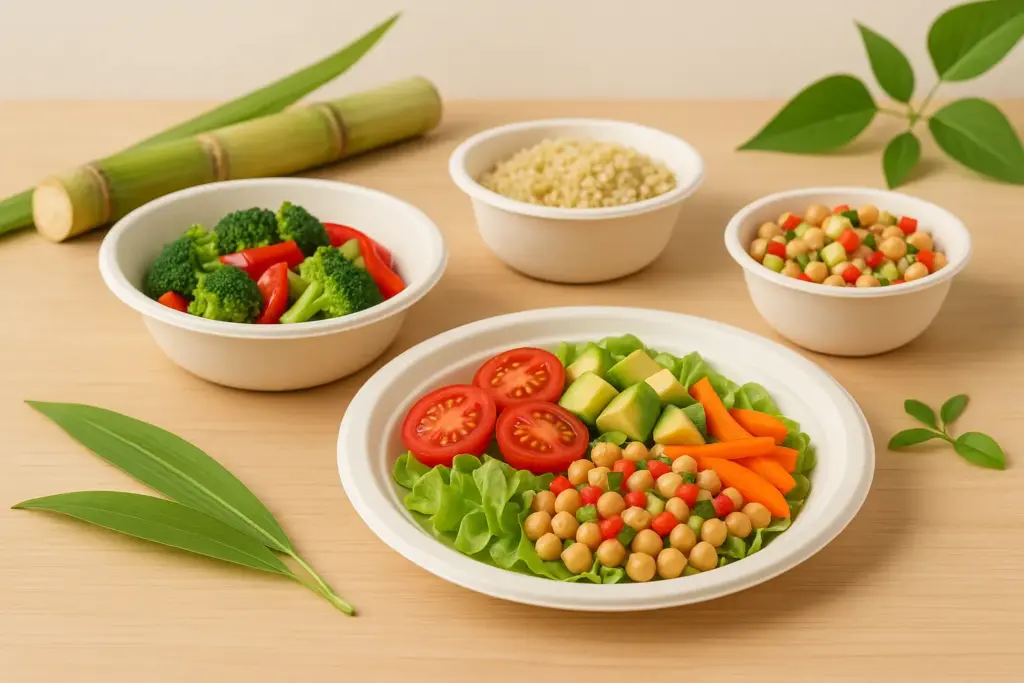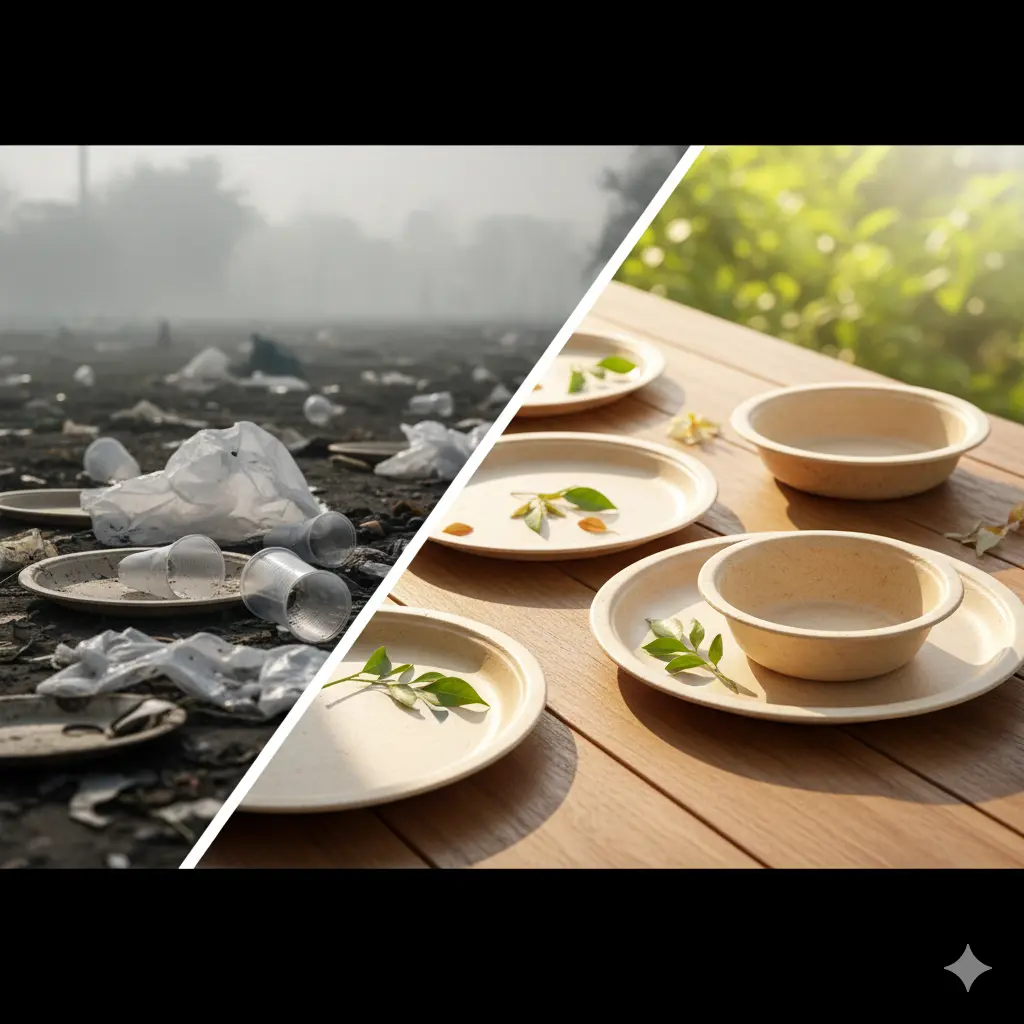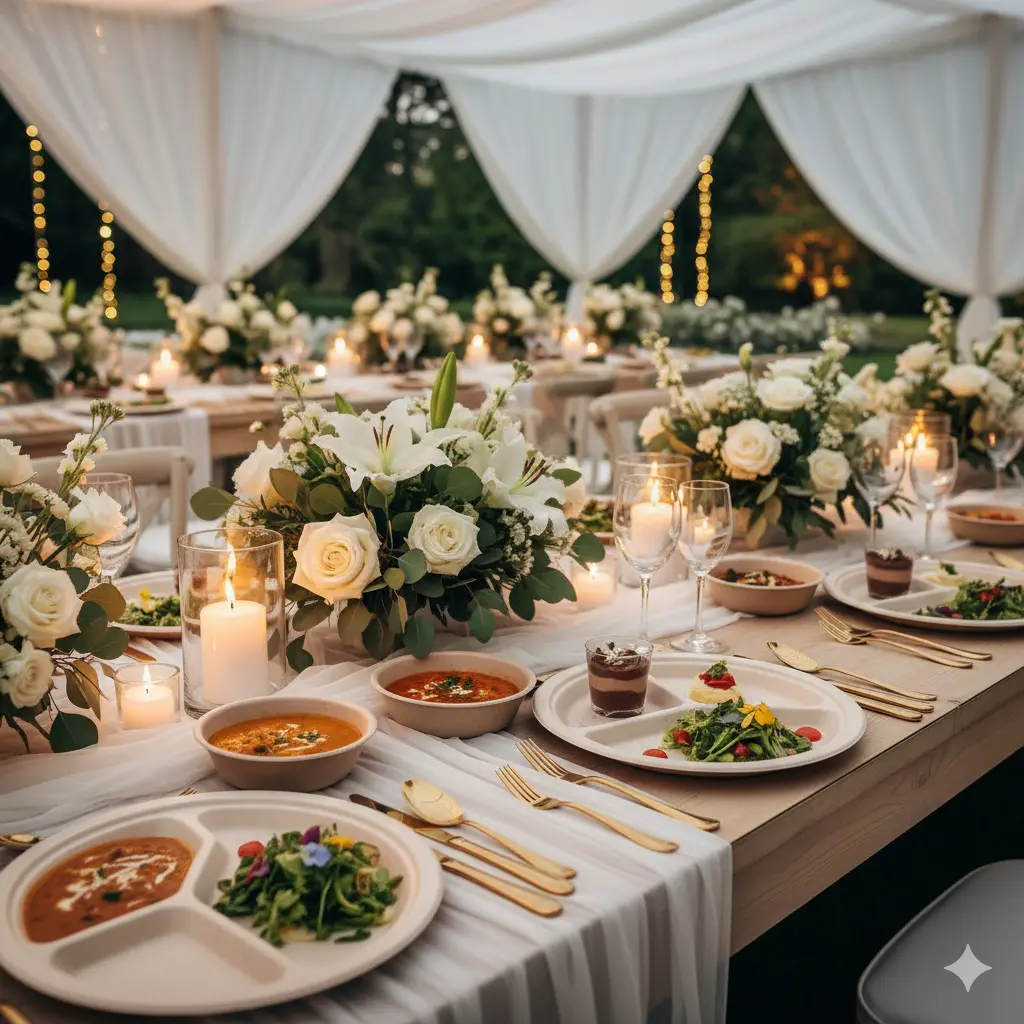What is bagasse?
Bagasse is the fibrous residue left after extracting juice from sugarcane. It’s a renewable by-product used to make biodegradable tableware.
Is bagasse tableware biodegradable?
Yes, bagasse tableware is 100% biodegradable and compostable. It naturally decomposes within 60–90 days under proper composting conditions.
How is bagasse tableware better than plastic?
Unlike plastic, bagasse breaks down without harming the environment. It’s free from toxins, petroleum, and microplastics.
Is bagasse safe for food contact?
Absolutely. Bagasse is naturally safe and free from harmful chemicals like BPA, making it ideal for direct food contact.
Can bagasse tableware handle hot food?
Yes, bagasse products are heat-resistant and can handle hot foods and liquids up to 120°C (248°F) without deformation.
Can I microwave bagasse tableware?
Yes, bagasse is microwave-safe for short heating durations. It can withstand reheating without releasing toxins or melting.
Can bagasse tableware be used for cold foods?
Yes, it performs just as well with cold dishes, desserts, and refrigerated items.
Is it oil- and water-resistant?
Yes, bagasse has natural resistance to oil and moisture, making it ideal for saucy or greasy foods.
How long does it take to decompose?
In composting environments, bagasse decomposes in 2–3 months. In landfills, it breaks down faster than plastic but slower than in compost.
Is bagasse tableware reusable?
Bagasse is designed for single use, but it’s strong enough for multiple uses in the same day if cleaned and dried properly.
How is bagasse tableware made?
Sugarcane pulp is molded into shapes using heat and pressure, then sterilized and packaged without harmful chemicals.
Does it have any smell or taste?
No, bagasse is neutral in taste and odor, ensuring your food’s flavor remains untouched.
Is it suitable for commercial use?
Yes. Restaurants, cafes, caterers, and event planners widely use bagasse for its sustainability and aesthetic appeal.
Can I compost bagasse at home?
Yes, as long as your home compost gets enough heat and moisture, it will break down effectively.
Does bagasse contribute to deforestation?
Not at all. It’s made from agricultural waste—no trees are cut down in the process.
Is bagasse tableware safe for kids?
Yes, it’s a safe, chemical-free, and sturdy alternative to plastic, suitable for all ages.
Is bagasse packaging eco-friendly too?
Many suppliers including us use minimal, recyclable, or compostable packaging to keep the entire product lifecycle sustainable.
Does it cost more than plastic or paper alternatives?
While slightly more expensive than plastic, the environmental and brand value benefits outweigh the cost.
Where can I buy bagasse tableware?
You can find it on our website https://pulp-craft.com/
Why choose our bagasse tableware?
Because we don’t just offer tableware—we offer a lifestyle. With superior quality, elegant designs, and a commitment to sustainability, our bagasse range helps your brand make a real impact—one plate at a time.


